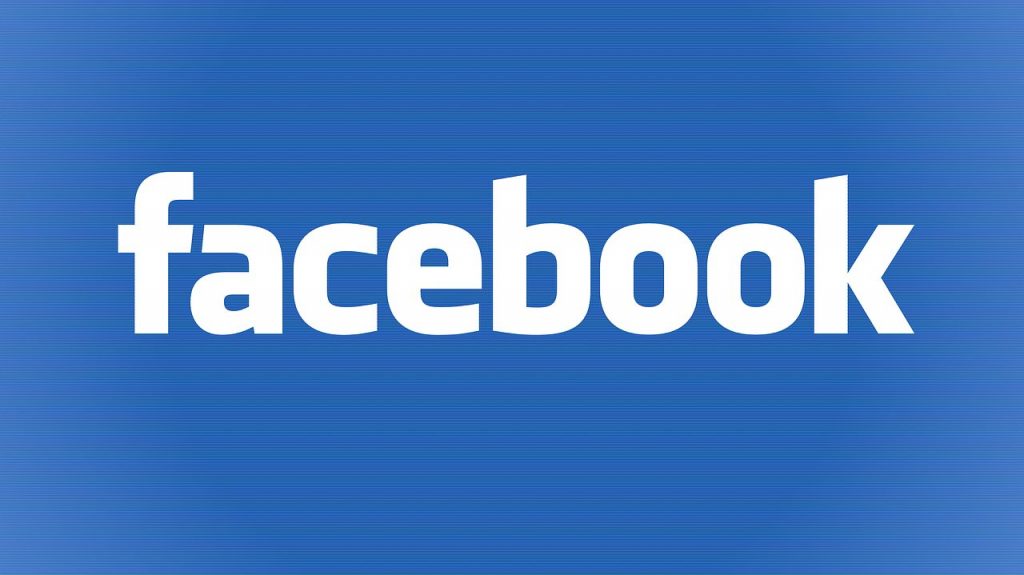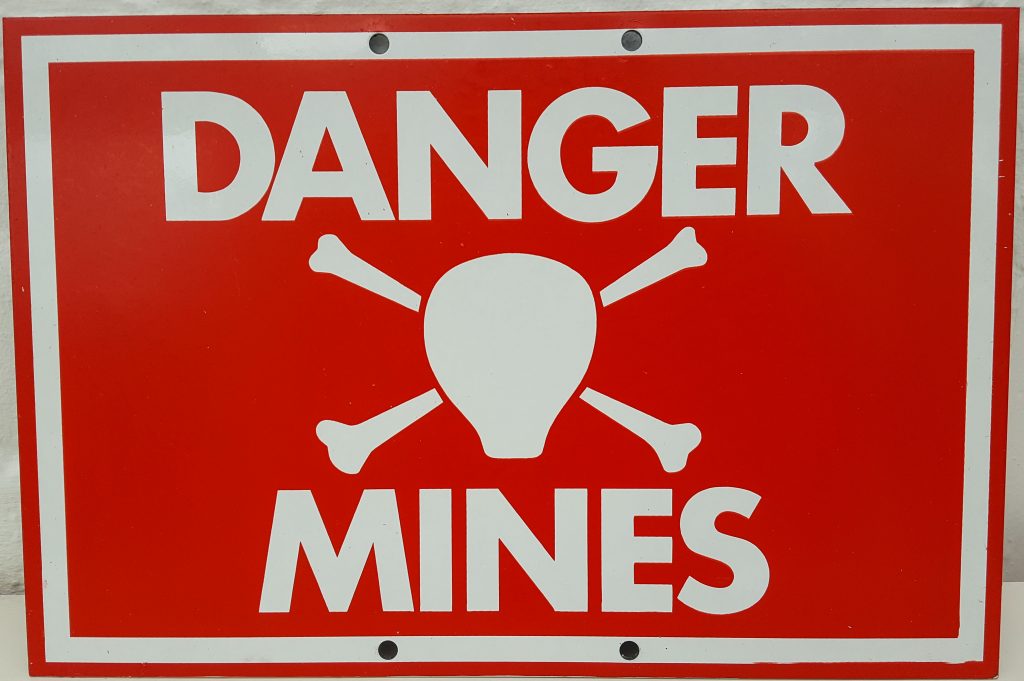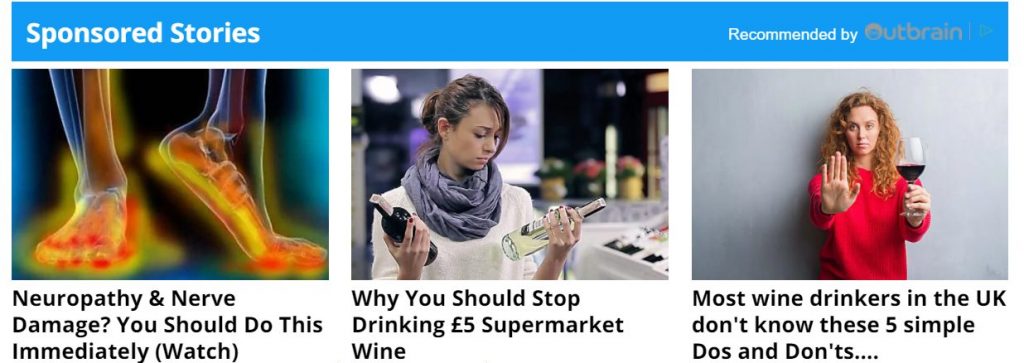How often have you looked up from your phone or computer to find that way more time has passed than you thought? Are you fed up of following interesting-sounding links to pages that are completely useless or irrelevant? How about the ads that pop up that are creepily for items that you were thinking about?
The good news is that you’re being manipulated by large companies who employ teams of psychologists to make sure you do this, and therefore also by all the smaller companies and individuals who copy the big guys in the hope of becoming one of them. Yes, good news, because once you know how you’re being manipulated you can control it; you can choose whether to go down the rabbithole or not. You can choose to do it as a harmless distraction for a fixed time, rather than allowing it to ruin your day (week? life?) by stealing hours of time from genuinely rewarding or important things, making you late for appointments or deadlines, and adding stress that you don’t need.

Wait – the internet’s not free?
The internet’s great, isn’t it? A near-infinite, mostly free resource with more information on more topics than you can ever imagine. All that, plus cat videos. The thing is, who creates all this stuff? Who takes the time and pays the cost of setting up servers, maintaining them, writing the articles, shooting and editing the videos and then just giving it to you? For free?
Some of it – a tiny proportion – will be done by people who simply care about their subject and want to share their knowledge. Altruists and enthusiasts who are willing to pay, both in time and money, to share their interest with others. The overwhelming majority, though, are doing it for personal gain – fair enough – and need to get a return from somewhere. That somewhere is, of course, advertising.
I’m not saying this is a bad thing. TV, radio, “free” newspapers and many other things have been using advertising for ever. If you want the free stuff, somebody has to pay for it to be created and the internet’s no different. Who are the two big boys of the internet today? Facebook and Google. What’s the core business of Facebook and Google? Advertising. How much does it cost you to use the services of Facebook and Google? Nothing – they’re “free”. They’re not, of course, it’s just that somebody else is paying your bills.
So who pays the bills?
The way these adverts work is that a company pays for “impressions” – basically every time their advert appears on somebody’s screen, they’re charged. The company pays a bit more if somebody clicks on the advert, and then – hopefully – sells something to cover the cost of the advert. Adverts are targeted based on what Facebook/Google/Whoever knows about you – and they know a lot. There are well validated stories of women finding out they’re pregnant because the adverts on their Facebook feed are suddenly all about babies. Assume that everything you do online – every website you visit, every search you make, every message you send and receive – is analysed and added to your personal profile that’s used to show you more targeted adverts.
Here’s the catch: anybody can within a few minutes add adverts to their own website. They’re paid a tiny amount every time their site shows an advert, and this is one of the easiest if least effective ways of getting a bit of cash back from the wild west of the internet. The more people you have looking at your site, the more advertising revenue you get. The problem here is that some people, you’ll be shocked to hear, are unscrupulous when it comes to getting money out of totally anonymous strangers. In many cases, the page you end up on will contain nothing more than more zero-quality adverts of a similar style to the one that suckered you onto the page in the first place.
What can I do about it?
One of the most obvious things is to run an ad-blocker. There are several out there, the best of which are totally free*, but they also have a catch: adverts pay for the internet. If you block adverts, the people who run the websites or make the videos don’t get paid. If they don’t get paid, they stop creating the content. In other words, ad blockers are a great short-term fix for you, but can cause harm to others and, over the long term, yourself. You can, however, tell ad blockers to allow adverts on certain websites so if there’s one you use all the time, you can let them advertise at you. Quite a few websites now have an option to pay them a small subscription to remove advertising completely which is an even better solution because you’ll get your money directly to the people that create the stuff you value.
That doesn’t really fix the biggest problem for your mental wellbeing though, because you’re still going to be wasting time following pointless links. It’s the loss of your time that’s going to cause you stress because lost time can’t ever be regained. The only way to fix that is to not waste the time in the first place, and to avoid that you need to learn a little about the tricks that companies use to get you to click on their links, and that – finally – is the real point of this article.
How can I avoid wasting time?
By far the most common thing to look out for is what’s called “clickbait”. These are links or adverts with tempting descriptions or images that tap into deep-down parts of the brain to get you to look impulsively, without really thinking. That’s one of the keys; the conscious brain may well be saying “what bullshit!” but the monkey brain has already clicked the link. Cha-ching! Some company has just paid some other company a tiny fraction of a penny that you’ve paid for with 30 seconds of your life. The next page you see will be plastered in adverts and more clickbait, drawing you further down the rabbithole if you’re not careful.
The most blatant peddlers of this kind of crap are agencies like Outbrain and Taboola. There are many others. You’ll often see large panels on websites with titles like “More for you”, “You May Like”, or “Sponsored stories”, with a much smaller label saying who’s providing the panel. The contents will be entirely bogus links which are just designed to appeal to the big, shiny buttons in the primal monkey-brain: Eat it, kill it, flee it or shag it.
Danger!
Ever seen a group of antelope staring at a lion but not running? A troop of chimps staring at a predator, or the body of one of their members who’s died from injury or poison? A crowd of intelligent, caring people staring helplessly at someone who’s collapsed, or a fight? Rubberneckers passing a crash on the motorway? Animals look at danger; “it happened to them, it could be me next, I need to watch to see if I need to run or fight”. It’s the simple, strong, flight-or-flight instinct. A line that implies danger will get your attention every time.

Downfall!
Basically the same as “Danger!”. The headline is usually along the lines of “<Minor celebrity>’s life ruined!”, “Shock revelation about <minor celebrity> will make you gasp!” or “Plastic surgery that went hideously wrong [Photos]!”.
Anything in square brackets
See the “[Photos]” tag in the previous example? You’ll find similar things with other tempting phrases like “[Try tonight]”, “[Too simple]”, “[Full details]”. Basically the brackets just add emphasis, like it’s something vitally important, breathlessly added in at the last moment. They add urgency and reinforce that “danger” response.
It’s mine, all mine!
This is the big one – resource gathering. The deep-seated instinct to get something, especially if it’s somehow limited or rare, and especially especially before somebody else gets it. This is in almost all low-value links simply because it’s so effective. It will always cover some kind of personal gain, and usually add in a level of urgency implying a limited resource, or personal targeting making the resource specific to you and therefore of higher value. The most common ways of doing that are by age, gender and current location because all of those can be automatically added to the text of the links based on what the advert seller (Facebook/Google and friends) know about you.
Ever seen a link saying something like “Mums in Ipswich going mad for this one essential thing (Try it today)!” with a photo of someone gasping in surprise? That’s gender-specific, age-specific, location-specific based on your internet connection, limited-availability resource gathering with a side helping of urgency thrown in. The actual information content, if you pause long enough to think about it, is zero; the urge to click the link and find out more is overwhelming if you’re in the right state of mind. What did it actually turn out to be if you were daft enough to click on it? Turmeric pills.
Any link with “This thing” in it
Plain and simple clickbait. You don’t get so much as a hint of what “this thing” is without clicking the link, even when “this thing” turns out to be a short, simple word that would have made the link much more informative. “This thing”, “These five things”, “Top ten”, “Best (whatever) in 2020” and so on.
Any link with “Hack” in it…
… unless it’s talking about computer network security or machetes. This tweaks the “secret” side of resource gathering; it’s a shortcut, a secret, a way of reducing the cost of doing something that other people don’t know and will give you a competitive edge. To be fair, this one is sometimes used by genuine articles covering some technique or other, but it’s usually a fair indicator of clickbait.
Any link phrased as a question
There’s a rule in journalism which basically states that any headline that ends in a question mark can be answered with “No”. If you ask something outrageous as a question, it’s a question and totally allowable. If you state something outrageous as a fact, it’s libel. In other words, you can say anything you like about anyone you like, no matter how obviously false it is, as long as you phrase it as a question. Just expect the answer to be “no” – but hey, made you look!
Authority
Humans are hierarchical animals and will tend to instinctively look up to authority as having better information or experience. A link that says “Scientists”, “Experts”, “Senior (job title)”, “Millionaire”, is giving the rest of the link believability that it almost certainly doesn’t deserve.
Urgency
Any link which implies a limited time is also tweaking the resource-gathering instinct: “Get it now or it’ll be gone”. Things like “Do this now”, “Only today”, “Instant Results”, “Don’t wait”, “Skip the queues”. Think about it; this advert will be shown to potentially millions of people. How exclusive do you really think it’s likely to be? Which leads on to the almost-identical…
Fear of Missing Out
Once again, our old friend resource-gathering. Everyone else is getting this thing, whatever it is, but it’s not going to last forever. Look for things like “Limited Edition”, “Last Few”, “Ends Today”, “Everyone in (your town)…” .
Examples
It’s really no more complicated than that. The fact that this kind of blatant manipulation is so effective is amazing if you pause to think about it, but the few instincts that it’s working with, those deep-seated buttons in your head that release a small dopamine hit, are universal and undeniable. The whole point is that you don’t think about it.
Here’s some pictures of clickbait panels. These ones are not links, just pictures from other websites!

The first one is a typical targeted advert. They know that my date of birth is within a certain range and that’s enough. This one is blatant enough to actually list the range, most are slightly more subtle about it – but not much. This one hits the resource-gathering instinct – “… in for a treat …” – and the “This September” is simply because it’s currently September and makes it more relevant and therefore more deserving of attention. In other words, click now or you might miss out, reinforcing the resource-gathering buzz. Curiously, the pictures associated with this advertiser – I get these ones a lot – are all massively over-sharpened photos of angry faces. Anger means something bad’s happened, tweaking the “danger” instinct. This is completely at odds with the headline telling me there’s a treat in store, but crucially it hits the two strongest instincts at once. Maybe the implication is that the angry people have missed out on the treat.
The second is also age-targeted; once you’re north of 40 you’ll start getting loads of adverts for funerals, stairlifts, care homes, arthritis cures etc. because the age group bands used by the advertising companies tend to get wider towards the top end, and pensioners are more likely to take adverts at face value and therefore more likely to follow the link or buy the service, believing it to be genuine. Did you note the date range in the first ad (1951 – 1979)? As of today that covers ages 41 through 69. The second ad is also a great example of good ol’fashioned clickbait – “Do This First Thing” – you have to click the link to find out what “this thing” is, and telling you to do it “First” gives it importance. Finally we have “Doctor says”, giving the claim authority.
Very often this kind of link will include the name of a nearby large town to make this alleged secret, vital resource directly relevant to me, inflating its importance even further. The phenomenon where you hear or see your own name regardless of distractions is very real, and it extends at least a little to other familiar names like your location. I didn’t click on any of these but I’d be willing to bet that since the photo is of someone cooking a curry, it’s for turmeric supplements.
The third is again resource-gathering. “Seniors” is the age-band thing (for reference, I’m not Sarah and I’m 47). It’s telling me that there’s a resource out there that everybody else is getting and I’m not… wait, I want some of that! The crazy low price again hits resource-gathering; low requirement to get it, high reward (real smartwatches are expensive).
The fourth is nice and easy: They know I’m male, so here, have some boobs. This advertiser tends to use pictures from the 60s and 70s (age-band again, with the age band inflated by 20 years or so for the reasons I gave above, plus political correctness not having been invented yet in the 60s meaning that photos of faintly-visible nipples are easier to find) and the implication (“not expecting this photo”) that if I just click the link I might see more boobs, or even something better than boobs. This, you’ll note, is from somewhere calling itself the “Scientific Mirror” which really doesn’t feel like a site that would normally be peddling soft porn.
Here’s a few more:

The first of these examples is again age-gated. Over 40 means you’re instantly on the point of death in the minds of advertisers. “Do this immediately” gives urgency, attracting your attention even more, and the “(Watch)” adds even more urgency as well as what’s called the “call to arms”, a short, sharp instruction to do something. It’s almost always “Watch”, “Photos” or something else very visual because we’re visual animals and, tied with the urgency, this pings the danger instinct.
The second advert targets fear of missing out and resource-gathering. It implies that there’s some kind of secret source of something that’s even better and/or less cost to gather than £5 wine.
The last is very similar; there’s a secret, it’s targeted to wine drinkers as with the previous one (I’m very much a beer man so I don’t know why wine is showing up so heavily, probably just age-band) and it’s clickbait – you have to follow the link to get the secret. The ellipsis (trailing dots) at the end adds a little urgency – there’s more to this than I’ve told you, just click the link and I’ll tell all. The photo adds danger with the outstretched hand universally understood as “no” or “stop”, and the serious expression with wide-open eyes typical of a fear response.
Here’s a few real examples for you to work out, with some hints at the end of the article:
- IBM is offering Watson Assistant at no charge for 90 days. Try it now!
- Surgeon: Tinnitus? When The Ringing Won’t Stop, Do This (Watch)
- Single? 3 Online Dating Sites That Actually Work
- Research reveals THE KEY to having a good hybrid multicloud strategy
- Should Asperger’s Syndrome Be Renamed? Unearthed Documents Reveal Disturbing Truth About Hans Asperger
- Who Will Get The Coronavirus Vaccine First? We Need To Plan Now
- This Woman’s Mystery Weight Gain Turned Out To Be Something Much More Disturbing
Doomscrolling
As a side-issue, doomscrolling isn’t advertising itself but it’s heavily used by social media companies in particular, who themselves rely on advertising to provide their free services. It’s the endless scroll with something of interest, often one of these trash adverts, inserted in realtime as you scroll down the page such that there’s usually one visible – or, better, not visible but almost certainly visible if you just scroll down the tiniest amount. In other words, the need to go back and click on a new page for new content is removed, it just scrolls forever. Go on, you know you want to.
Have you ever used Facebook? Google image search? Pinterest? Reddit? Twitter? You’ve seen doomscrolling. Ever seen someone hunched over their phone or keyboard, face slack, eyes glazed, the only signs of life being repetitive thumb motion, occasionally walking out into busy traffic? You’ve seen someone else in the grip of doomscrolling. Sadly, the staff room of some veterinary practices are full of people in this exact zombie state, communicating with their phones but not with the real people next to them.
The key is that there’s something that piques your interest, tweaks those animal instincts, always just on the edge of vision. You don’t even need to go as far as clicking a link, just keep up that repetitive, comforting, minimal motion and you’ll keep those dopamine hits coming. Supporters say it makes navigating their site and finding relevant information easier. Detractors say it’s the digital age’s equivalent of rocking backwards and forwards with a thousand-yard stare whilst gently drooling. Both are correct, and the line between them lies at the precise point where you lose – or lost – control and handed it to the advertisers.

But what’s the actual problem here?
Okay, so these ads and trash links are a bit of a mild distraction and who doesn’t need that from time to time? Sure, we all do. The problem is that they’re very good at bypassing the truly intelligent part of your brain and keying into the animal instincts underneath – resource-gathering, danger avoidance and, especially for males, sex. If you’re already under stress, what you might call considered, detached logical processes are already beginning to take a back seat in favour of instincts thanks to fight-or-flight, making it more likely that these adverts are going to get your attention. If the source of that stress is time pressure as it so often is today, you’re simply going to put yourself under even more long-term pressure in order to gain a tiny dopamine hit right now. This puts your intelligence further on the back foot, which makes it more likely you’re going to actively seek animal-level distraction to help salve the stress, which… you get the picture. I’ve seen extremely intelligent, highly-educated people under severe time pressure follow links like these for hours and then then spend the rest of the day in a fury at how little they’ve achieved, lowering self-esteem and making sure that their stress is liberally shared with everybody around them.
In a strange way, having the results of following the link being extremely low quality is actually a win for the website owner. You, the reader, got your dopamine hit by clicking on the link in the hope of getting whatever elusive, exclusive thing the link promised – only to have those hopes dashed when you compare what you actually got with what you were promised. Boo, I need a dopamine hit. But… wait? What’s this? There’s a whole array of other dopamine hits peppered around the page and if I just click on this one… This is called ad farming. The site has nothing whatsoever to offer, it does nothing more than show you a picture or a couple of paragraphs of nonsense, but it shows you more adverts. Lots more adverts. It gets paid to show them to you and if it can just show you enough of them, it will earn back the cost of the click that brought you in in the first place and leave a little left over as profit, for zero effort.
And your beef with Doomscrolling?
Doomscrolling is similar but with a higher cost to you, and fewer benefits for others. Let’s follow the process though. We’ll start with two totally fictitious companies; company A, an internet giant who both provides services and sells advertising, who we’re going to call TwitFace. Company B, a much smaller company who is either ad-farming or genuinely trying to sell you something, we’ll call The Boogie-Woogie Bugle Boys.
Normal advertising goes like this:
- Your conscious brain seeks out TwitFace as a source of something you hold valuable.
- TwitFace provides you with what you sought and shows you an advert for The Boogie-Woogie Bugle Boys.
- Boogie-Woogie Bugle Boys pay TwitFace a small amount of money.
- Monkey brain, he say “Oooh!” at the clickbait advert.
- Conscious brain says “Oooh? Oh, yeah. Click.” (Pause)
- Boogie-Woogie Bugle Boys pay TwitFace a larger amount of money.
- Conscious brain says “Meh”.
- You click ‘Back’ to return to TwitFace’s content page (Pause)
- You click ‘Back’ to return to TwitFace’s main page (Pause)
- You look for a new page to read and click to read it (Pause)
Repeat ad infinitum, except that after a while step 1 changes to this:
- Your monkey brain seeks out TwitFace as a source of something it holds valuable – an easy dopamine hit.
Monkey brain gets something, conscious brain gets something, Company B gets to show you its product/ad farm but very little else, and TwitFace wins this round – you voluntarily sought them out, they show you content that was created at no cost to them by another user, and The Boogie-Woogie Bugle Boys paid them. Twice.
Some time later, your conscious brain has learned that the ads are usually not even worth noticing and the process gets refined to:
- Your conscious brain seeks out TwitFace as a source of something you hold valuable.
- TwitFace provides you with what you sought and shows you an advert for The Boogie-Woogie Bugle Boys.
- Boogie-Woogie Bugle Boys pay TwitFace a small amount of money.
- Monkey brain, he say “Oooh!” at the clickbait advert.
- Conscious brain says “Oooh? No, wait, I call bullshit. Meh.”
- You click ‘Back’ to return to TwitFace’s main page (Pause)
- You look for a new page to read and click to read it (Pause).
Great – we’ve cut out a couple of the timewasting stages but also a couple of the pauses, and the pauses are important.
Now let’s repeat, but Now With Added Doomscrolling!!!
- Your conscious brain seeks out TwitFace as a source of something you hold valuable.
- TwitFace provides you with what you sought and shows you an advert for The Boogie-Woogie Bugle Boys.
- Boogie-Woogie Bugle Boys pay TwitFace a small amount of money.
- Monkey brain, he say “Oooh!” at the clickbait advert.
- Conscious brain says “Oooh? No, wait, I call bullshit. Meh.”
- You scroll down to get some new content to read.
Can you see what’s different? First, there are fewer steps. It’s a more streamlined process. Second, TwitFace still gets paid; less, true, but paid nonetheless. Your monkey brain kind of gets something but never gets to actually scratch the itch because your conscious brain intervened. If you think this isn’t powerful, Google “blue balls”. (At home; for the love of God, at home). Your conscious brain doesn’t get many rewards either, just an unending, relentless stream of “Crap… crap… crap… crap…” which it has to endure if it wants to retain access to the resource it values. And so, both your monkey brain (unrequited Oooh) and your conscious brain (whatever it was you valued in the first place) have reasons to return to TwitFace; less than before, but just enough to bring you back. The Boogie-Woogie Bugle Boys pay but never receive anything whatsoever.
One more small detail: all the pauses are gone. That’s good, isn’t it? Less time wasted? Well, here’s the kicker: you aren’t even afforded the tiniest fraction of a second away from TwitFace’s page for your conscious brain to kick in and say “Why am I doing this? What am I getting out of it? What time is it? OH, FUCK!”
The monkey-brain instinct to seek untapped, undiscovered resources; that imperative “just one more hill, just round one more corner” drive is being continually fed with no effort and no delay and as long as the partner instinct, satisfaction at having found something, gets an occasional win (the TwitFace content you actually wanted) the seek instinct can draw you on forever – and the seek instinct is being force-fed. This is why it’s called Doomscrolling. You’ve heard of an engaging little pastime called “gambling”, right? Draw your own parallels.
Final Thoughts
There’s no denying that this kind of link definitely scratches a deep-seated itch and you can have a good laugh at a lot of them too. Both of these things are great as a tiny, short-term dopamine boost that can take the edge off a stressful day. If you’re an obsessive personality though, and many vets appear to be like this, these links can completely destroy your day and put you in a downward spiral which will affect your own mental wellbeing and, if it’s not controlled, your relationships with others around you. Use these idiotic, impulsive monkey-brain distractions for what they are if you want to, but avoid falling into the trap they’re designed to create – of being the cause of the stress that makes you follow them in the first place, just to give a website owner a few thousandths of a penny.
Just to put your mind at rest, this website is really free. I do it to help the profession. I don’t have ads. However, if you would like to pay me something, even the equivalent of a cup of coffee, I would be very glad! Please contact me at sarah@sarahthevet.com
Clues for the example headlines
Hopefully you didn’t need these, but see if you came up with the same things I did:
- Resource-gathering (free), urgency and call to arms (try it now, with exclamation mark)
- Authority (Surgeon), age-specific (tinnitus), call to arms and clickbait (Do this), call to arms (Watch)
- Age-related (single – peak of likely divorce age), Secret (that actually work), location-specific (UK)
- Authority (Research reveals), secret (reveals), secret (THE KEY in capitals)
- Outright lie (question mark), secret (unearthed, reveals), authority (documents implies officialdom), danger (disturbing), secret (truth)
- Danger (coronavirus), urgency (get … first) and (plan now)
- Downfall (Mystery), age-specific (weight gain), danger (much more disturbing)

Leave a Reply